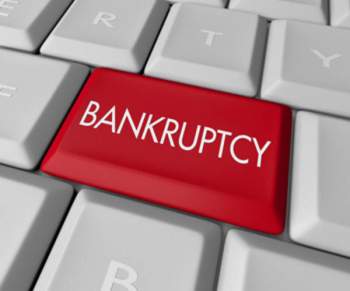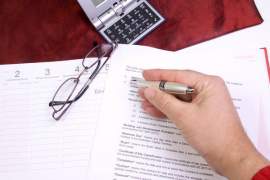
Chapter 13 Bankruptcy Plan

What is Chapter 13 Bankruptcy?
Also referred to as a wage earner’s plan, a Chapter 13 Bankruptcy plan allows individuals—receiving sustained income through employment or otherwise—to establish a strategy or plan to repay their outstanding debts.
Under a Chapter 13 Bankruptcy plan, debtors present a repayment initiative to provide installments to their primary creditors. These plans are typically established as three to five year plans. If the borrower’s monthly income is below the applicable state median (these Chapter 13 regulations are instituted by states and will vary based on region) the Chapter 13 Bankruptcy plan will be extended to five years. In no case, may a Chapter 13 bankruptcy plan provide for payments beyond a period of five years. Following this phase, the United States Federal Government forbids any creditor from starting or continuing their collection effort.
Advantages of a Chapter 13 Bankruptcy Plan:
A Chapter 13 Bankruptcy Plan offers debtors a number of advantages over the liquidation filing found under Chapter 7. Most significantly, a Chapter 13 Bankruptcy Plan awards the debtor the opportunity to save their homes from foreclosure. By engaging in a Chapter 13 Bankruptcy plan, an individual can curtail foreclosure proceedings and may resolve any delinquent mortgage payments over time.
Another advantage of the Chapter 13 Bankruptcy filing is that the initiative allows individuals to reschedule secured debts (all debts aside from property or real estate loans) and extend them for the life of the Chapter 13 Bankruptcy Plan. Doing this will lower the debtor’s monthly payments.
Chapter 13 Bankruptcy plans also provide special provisions that protect third parties who are deemed liable with the debtor for all “consumer debts”—these provisions may also protect a co-signer.
Lastly, a Chapter 13 Bankruptcy plan serves as a consolidation loan under which the debtor provides payments to a chapter 13 trustee who then allocates the monies to the underlying creditors. Thus, the debtor will have no direct contact with his or her creditors while under Chapter 13 protection.
Am I Eligible for a Chapter 13 Bankruptcy Plan?
A debtor, even if self-employer, is eligible to engage in a Chapter 13 plan so long as the individual’s unsecured debts are below $360,475 and secured debts are below $1,081,400. These figures gets adjusted periodically and reflects changes in the consumer price index.
A debtor may not file a Chapter 13 Bankruptcy plan, during the preceding 180 days, if a prior bankruptcy petition was discharged because of debtor’s willful failure to appear before the court or adhere to the orders of the court. Individuals will also be impeded from filing for a Chapter 13 Bankruptcy plan if they were dismissed after creditors sought relief from the courts to recover properties by which they held liens.
Furthermore, no person may be deemed a “debtor” under Chapter 13 of the Bankruptcy code unless the individual has, within 180 days before filing, received professional credit counseling from an approved agency.
How do I File for Chapter 13 Relief?
A Chapter 13 Bankruptcy plan begins by filing a petition with the bankruptcy court that presides over the area where the debtor maintains residence. The debtor must also file with the court the following: 1) schedules of all assets and liabilities; 2) a schedule of current incomes and expenditures; 3.) schedule of unexpired leases or executor contracts; and 4) statements or a statement of financial affairs. Additionally, the filing party must also provide a certificate of credit counseling and a copy of an affirmed debt repayment plan developed by said credit counseling service.
After the debtor has provided payments to the court for the filing, the individual must file the Official Bankruptcy Forms that comprise the petition. When filing these forms the debtor must include the following:
1. A detailed list of all associated creditors and the nature/amounts of their particular claims
2. The amount, frequency and source of the filer’s income
3. A list of the debtor’s property and a detailed filing of the debtor’s monthly living expenses.
When an individual files for a Chapter 13 Bankruptcy Plan, an impartial trustee will be appointed to preside and administer the case. Filing the Chapter 13 Bankruptcy Plan automatically stops collection actions against the debtor and his/her property.
NEXT: Chapter 13 Bankruptcy Information



















